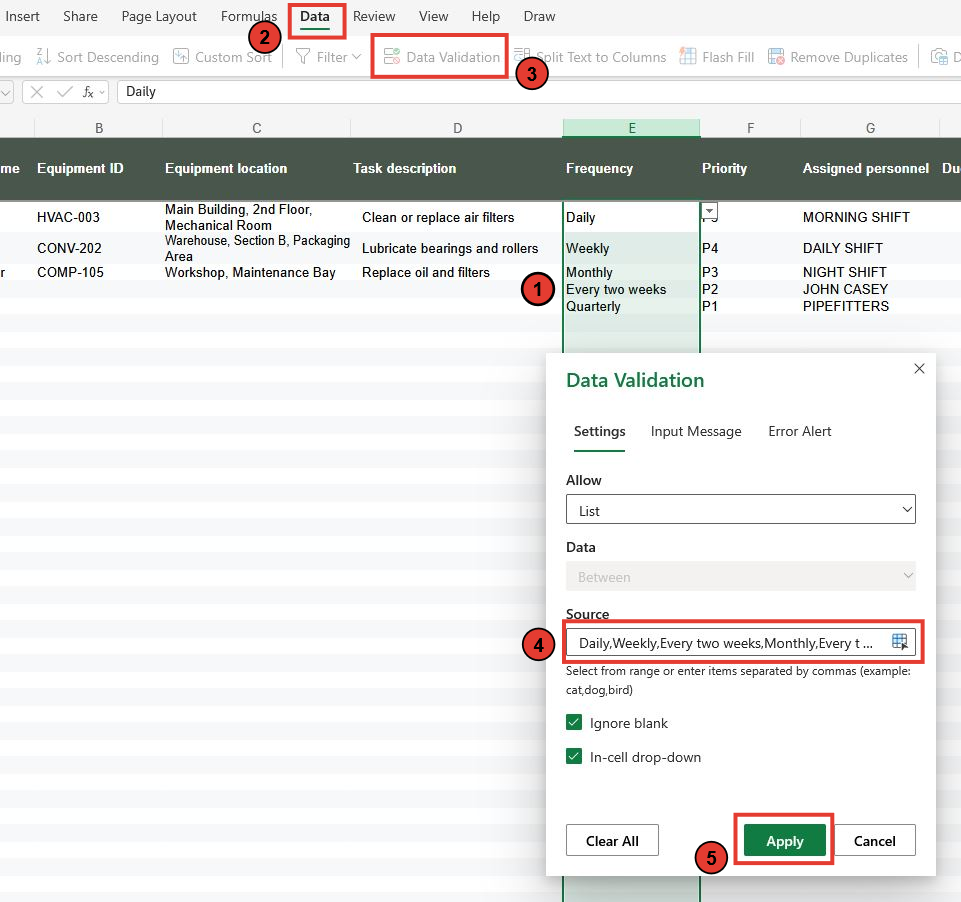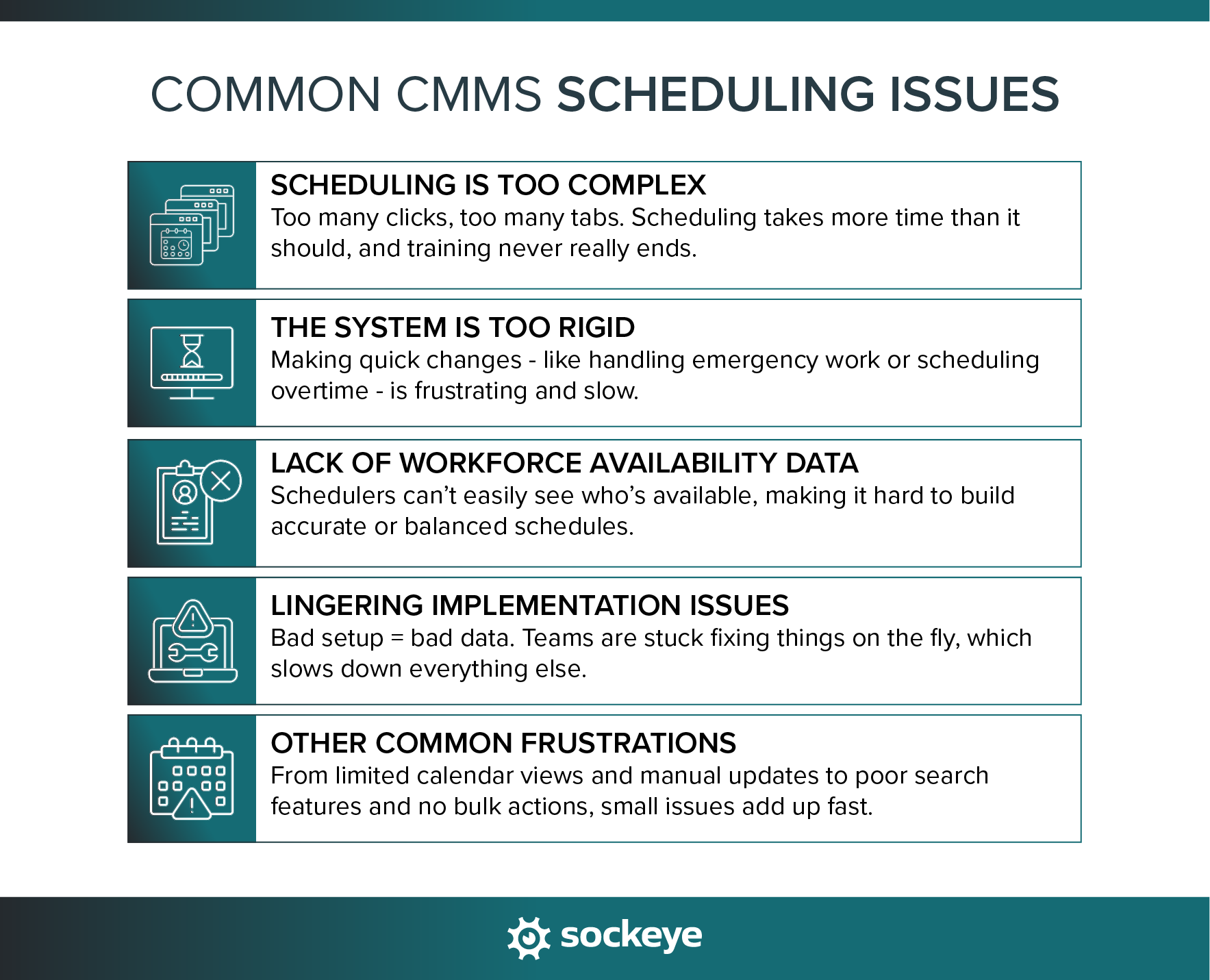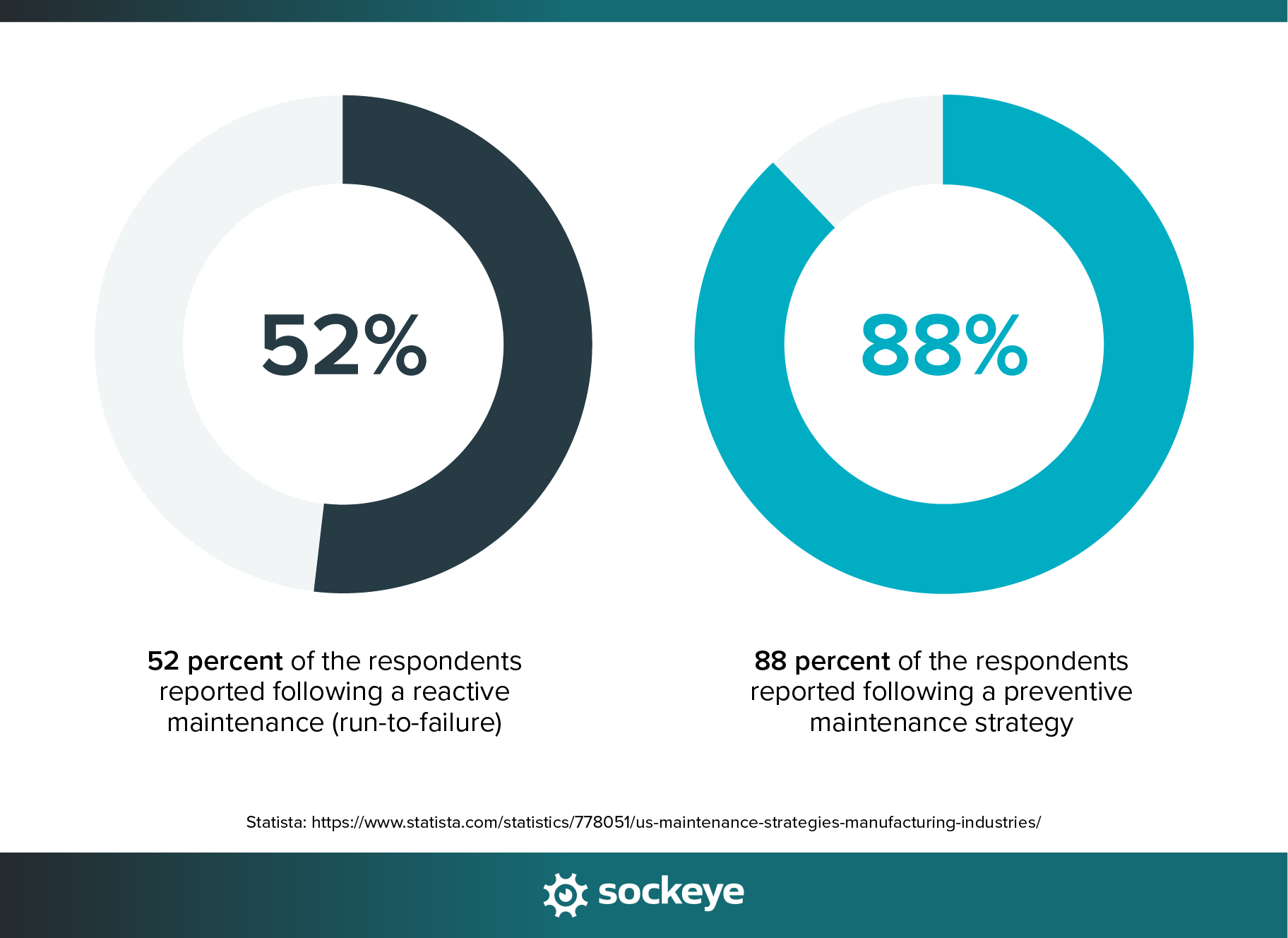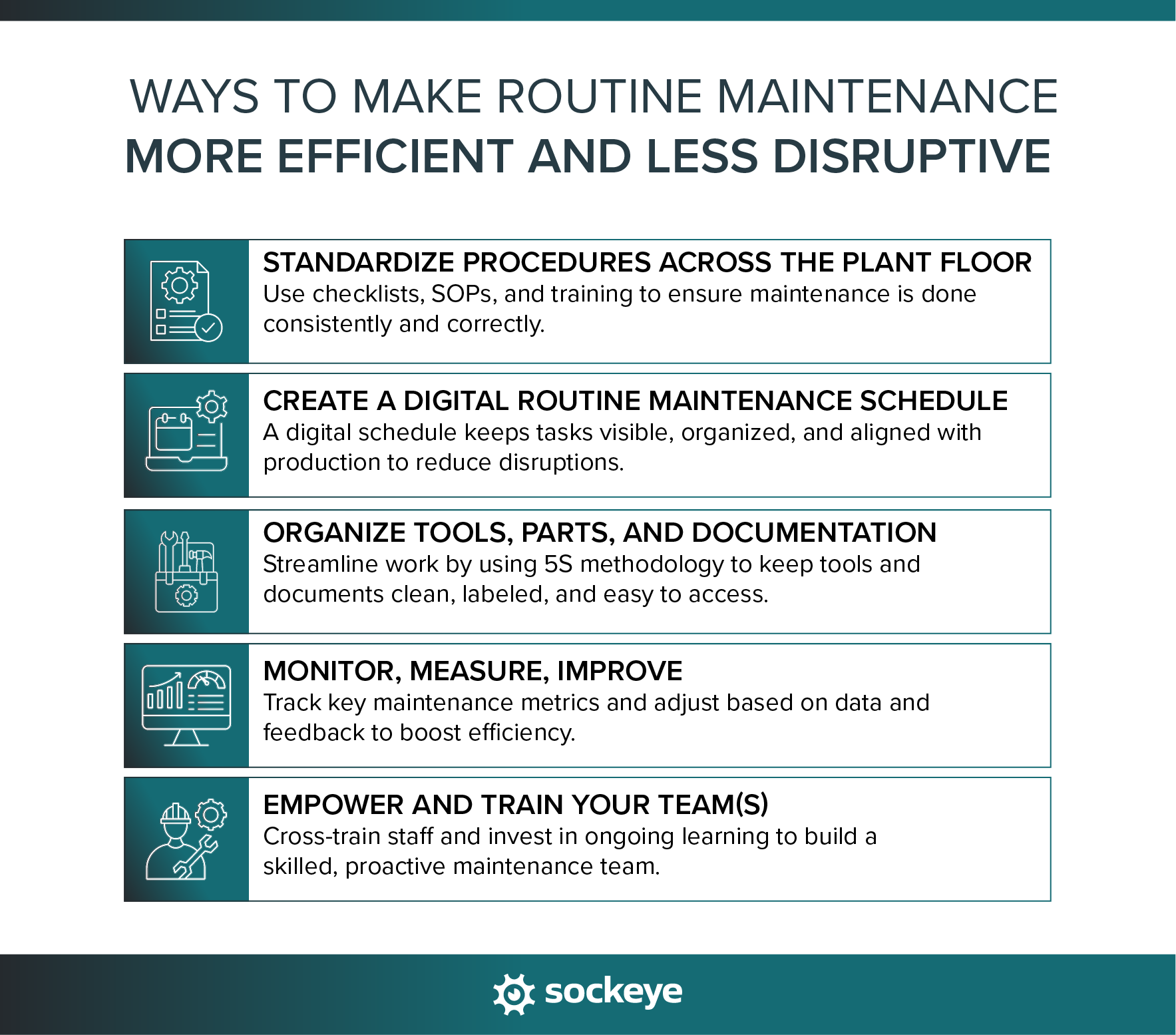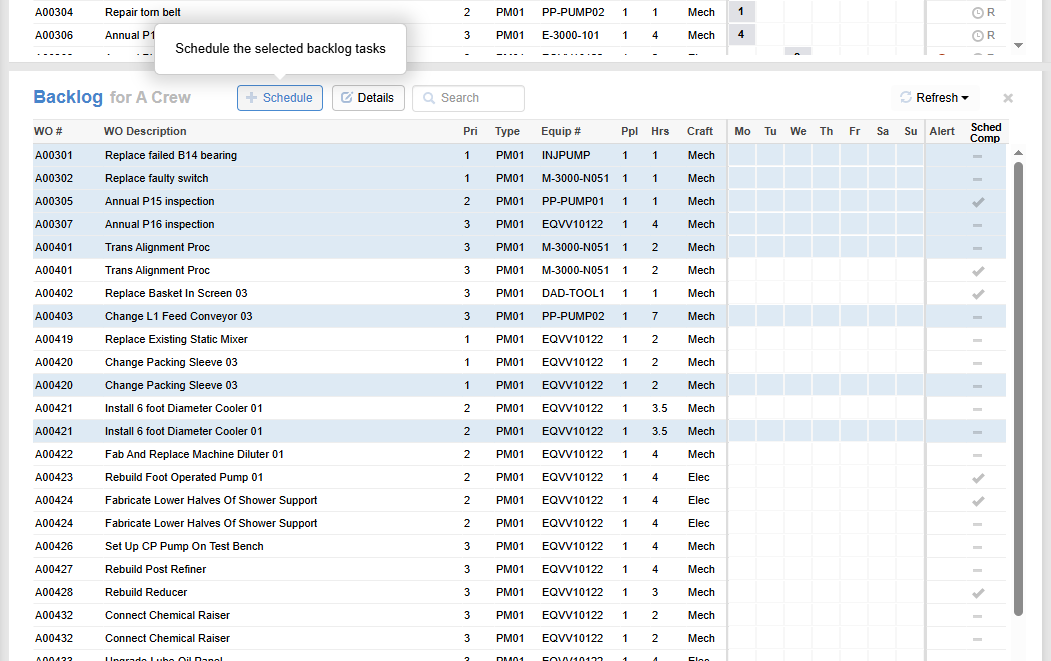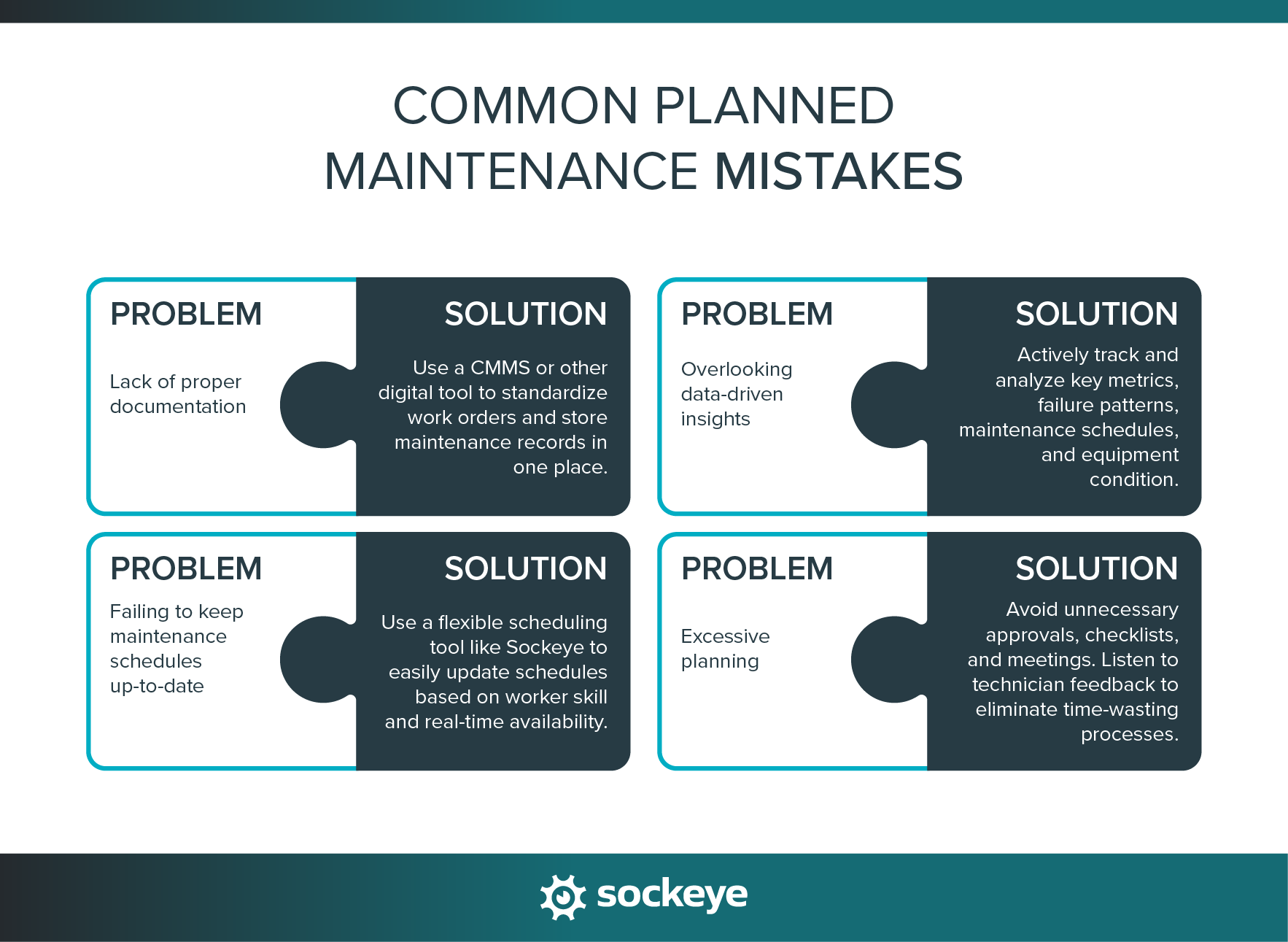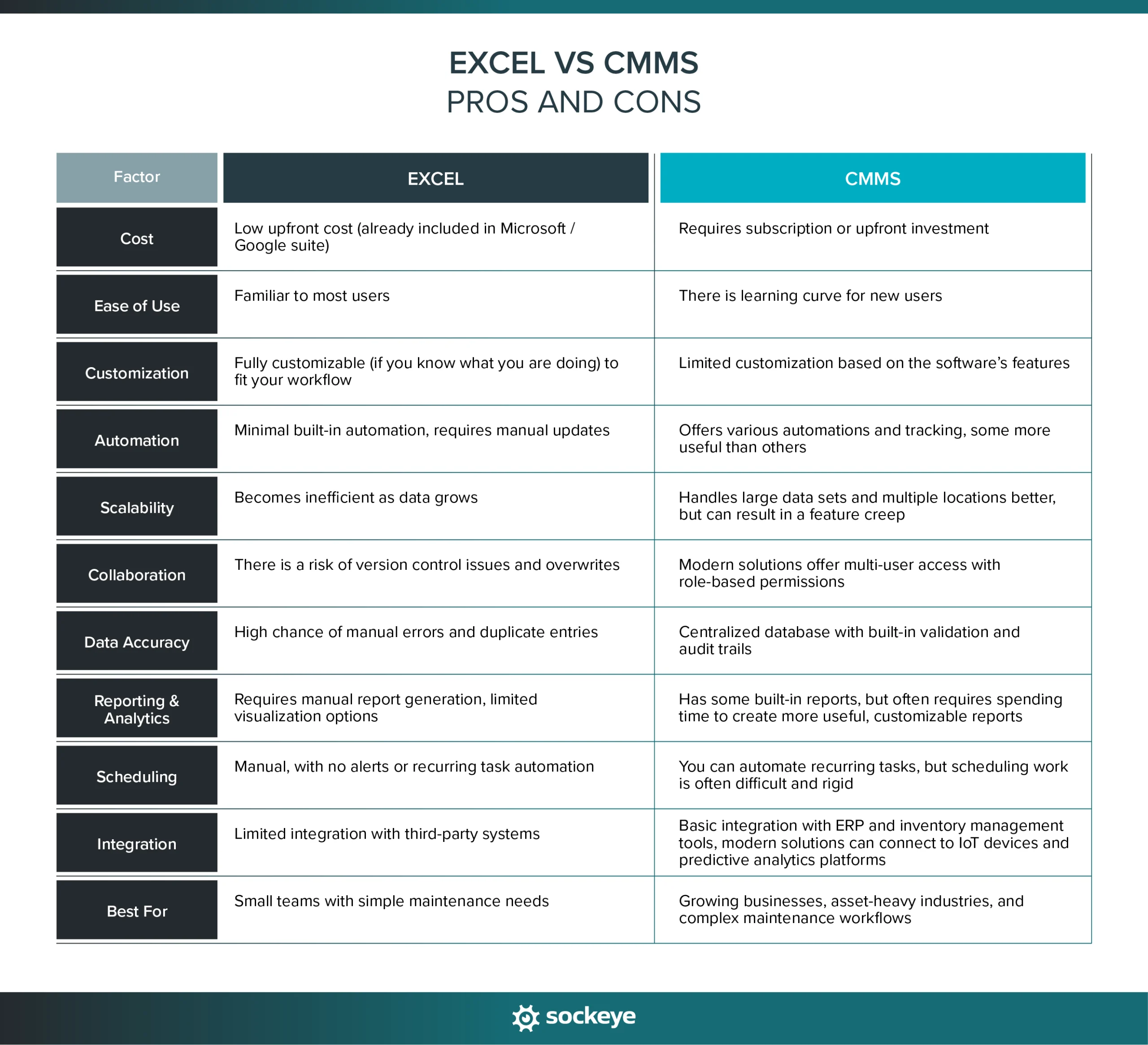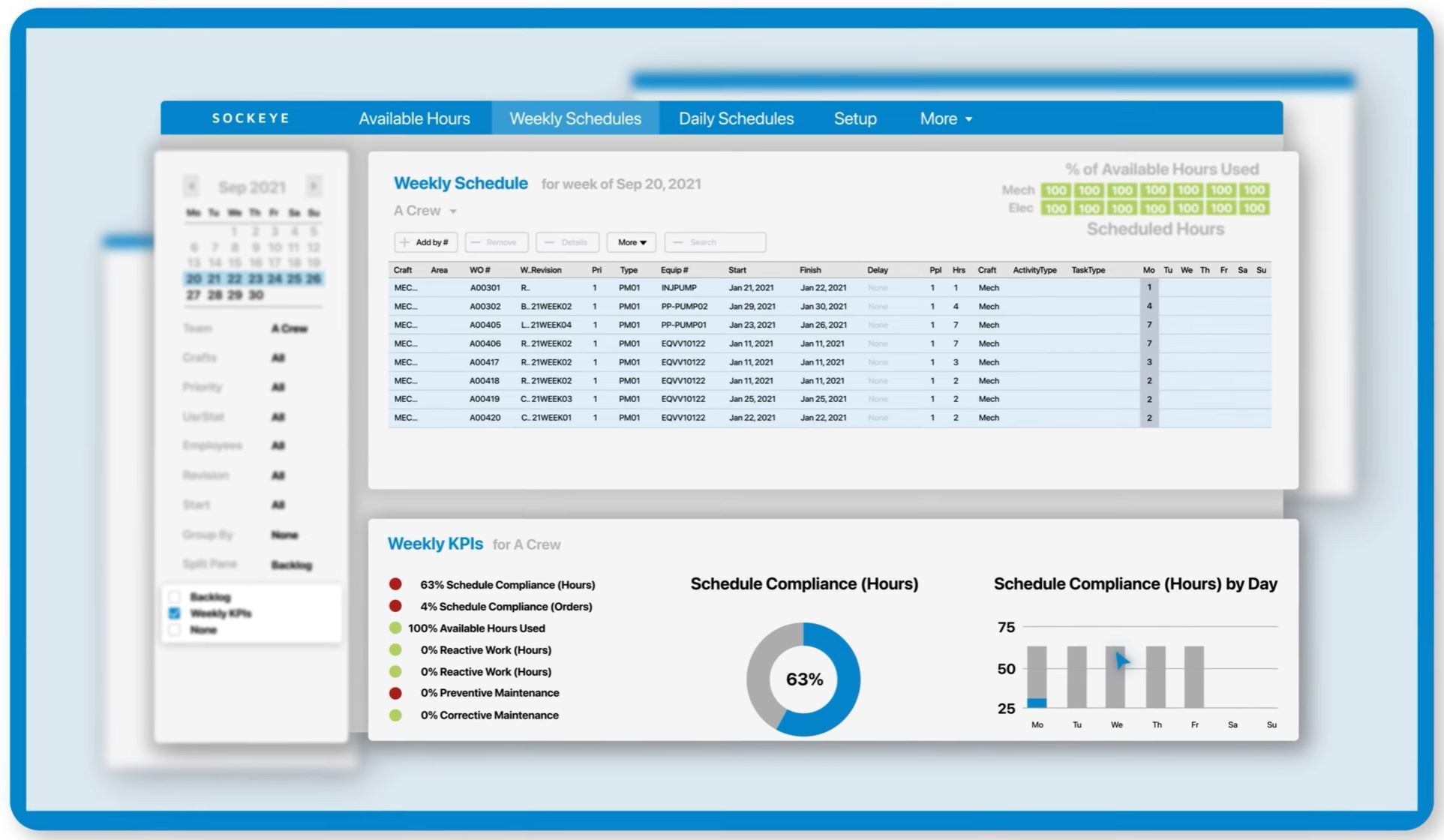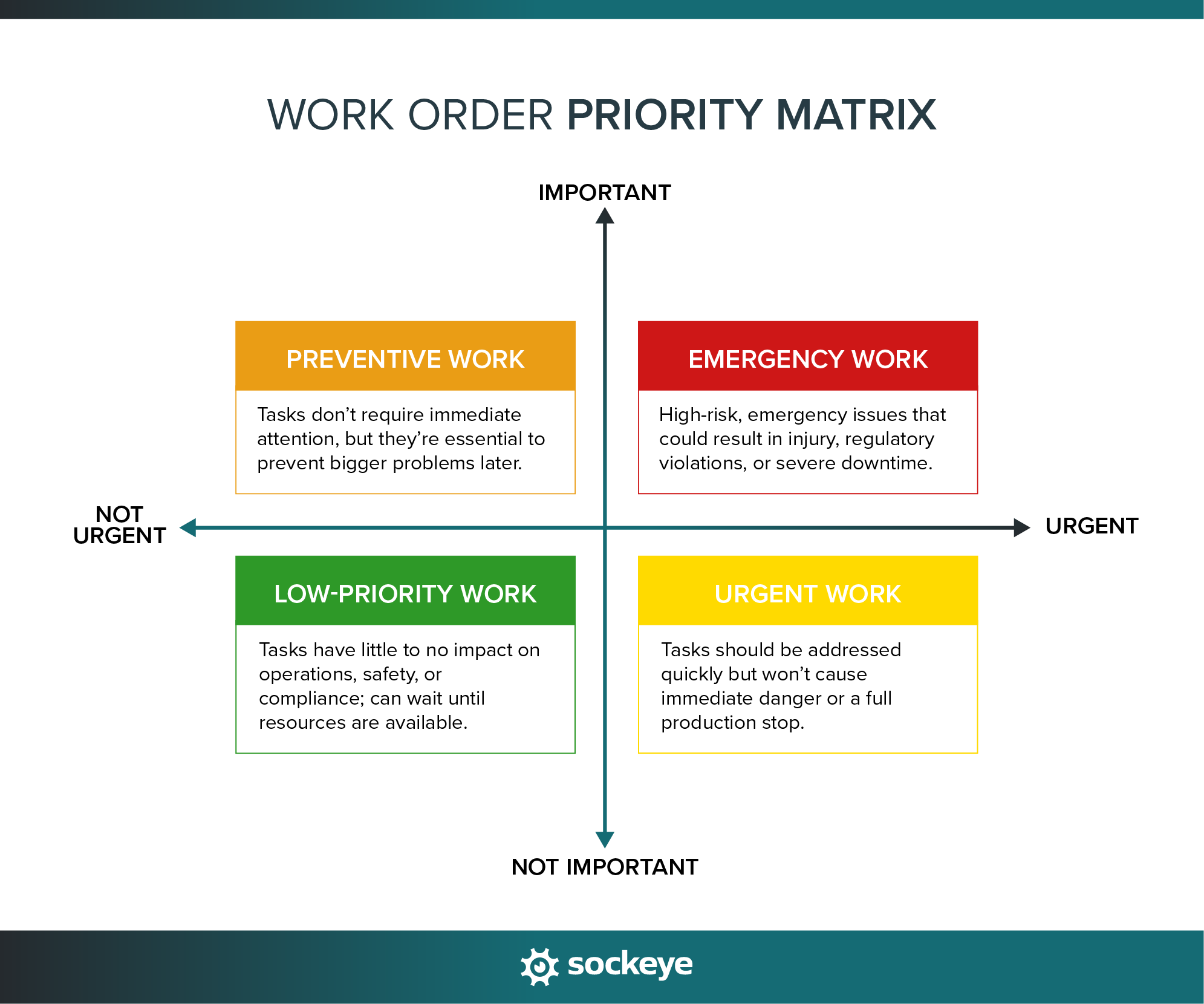Work order scheduling, simplified.
Learn from today’s reliability leaders.
-
Sockeye: maintenance Scheduling & Reporting Tool
If you are looking to use Excel as your preventive maintenance software, this article will provide you with free scheduling templates — and some guidance on how to use them.
Get Started
Take the next step to a highly productive maintenance team.
Book a Demo